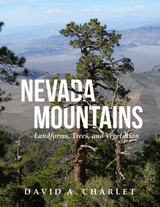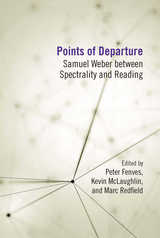

"Poetry does not impose, it exposes itself," wrote Paul Celan. Werner Hamacher's investigations into crucial texts of philosophical and literary modernity show that Celan's apothegm is also valid for the structure of understanding and for language in general. "Subject position" is widely invoked today, yet Hamacher is the first to thoroughly investigate the premises for this invocation. He demonstrates that the promise of a subject position is not only unavoidable--and thus produces more and more fundamentalisms--but is also unattainable and therefore always open to innovation, revision, and unexpected transformation. In a book that is both philosophical and literary, Hamacher gives us the fullest account of the vast disruption in the very nature of our understanding that was first unleashed by Kant's critique of human subjectivity.
In light of the double nature of every premise--that it is promised but never attainable--Hamacher gives us nine decisive themes, topics, and texts of modernity: the hermeneutic circle in Schleiermacher and Heidegger, the structure of ethical commands in Kant, Nietzsche's genealogy of moral terms and his exploration of the aporias of singularity, the irony of reading in de Man, the parabasis of language in Schlegel, Kleist's disruption of narrative representation, the gesture of naming in Benjamin and Kafka, and the incisive caesura that Paul Celan inserts into temporal and linguistic reversals.
There is no book that so fully brings the issues of both critical philosophy and critical literature into reach.
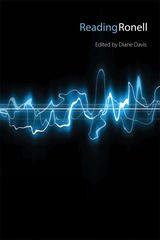
Avital Ronell has won worldwide acclaim for her work across literature and philosophy, psychoanalysis and popular culture, political theory and feminism, art and rhetoric, drugs and deconstruction. In works such as The Test Drive, Stupidity, Crack Wars, and The Telephone Book, she has perpetually raised new and powerful questions about how we think, what thinking does, and how we fool ourselves about the troubled space between thought and action.
In this collection, some of today's most distinguished and innovative thinkers turn their attention to Ronell's teaching, writing, and provocations, observing how Ronell reads and what comes from reading her. By reading Ronell, and reading Ronell reading, contributors examine the ethico-political implications of her radical dislocations and carefully explicate, extend, and explore the paraconcepts addressed in her works.
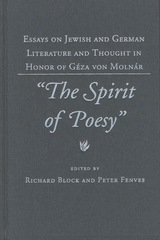
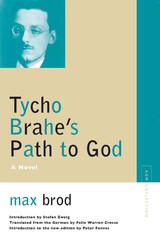
READERS
Browse our collection.
PUBLISHERS
See BiblioVault's publisher services.
STUDENT SERVICES
Files for college accessibility offices.
UChicago Accessibility Resources
home | accessibility | search | about | contact us
BiblioVault ® 2001 - 2024
The University of Chicago Press





